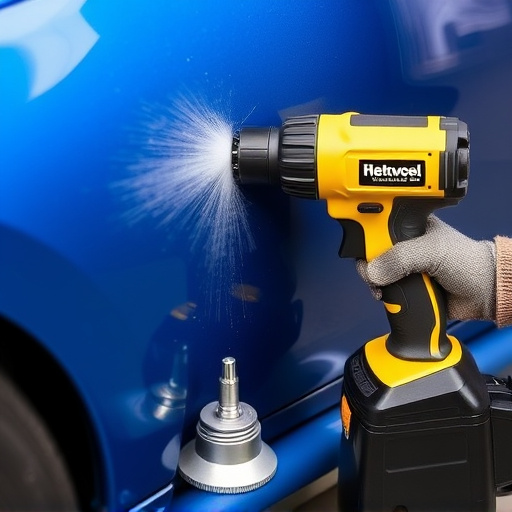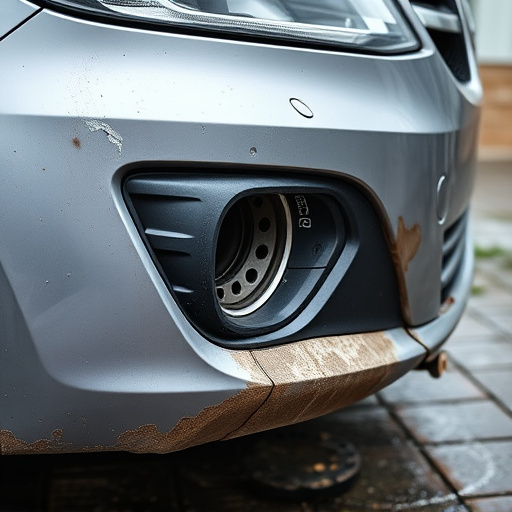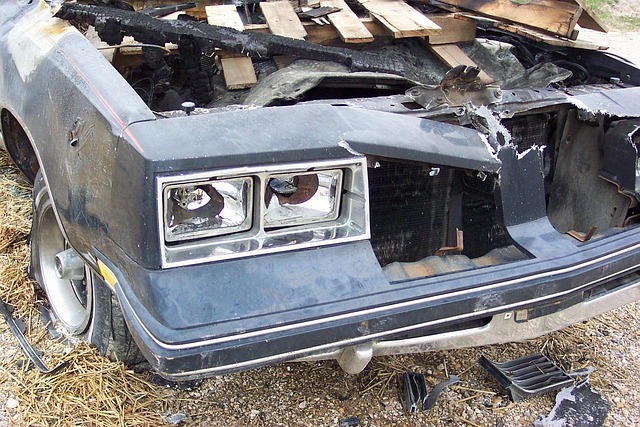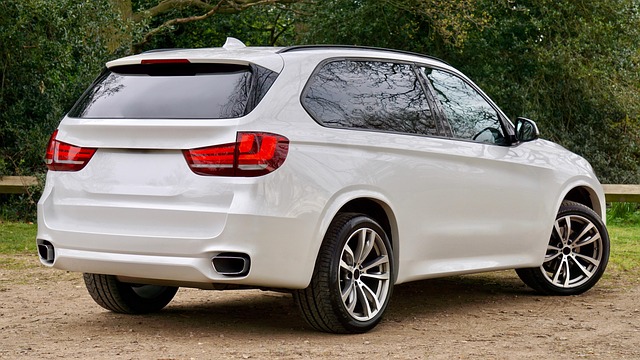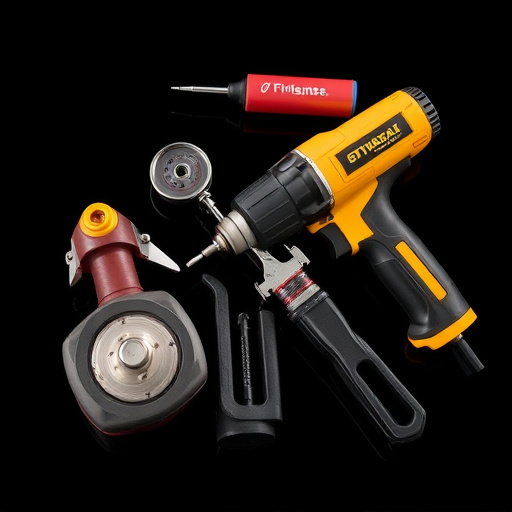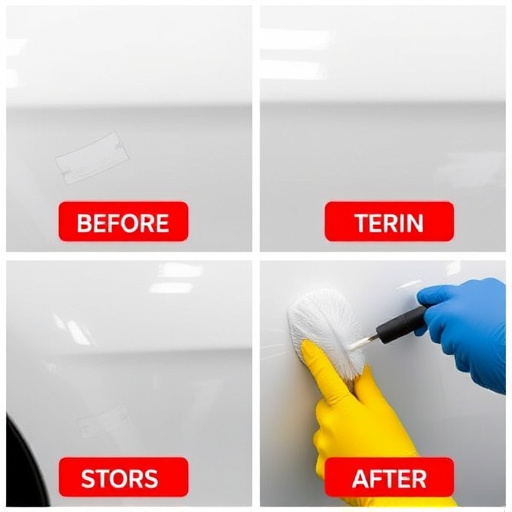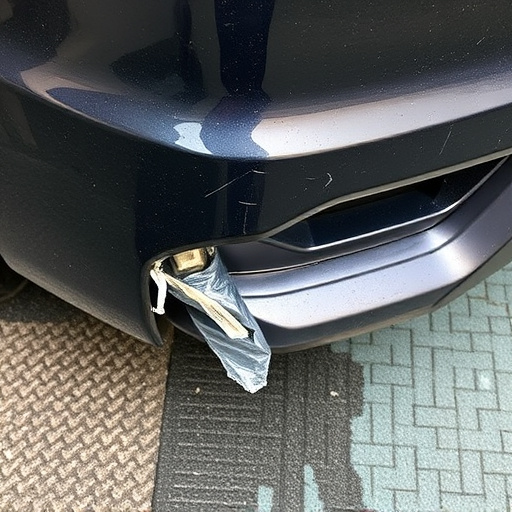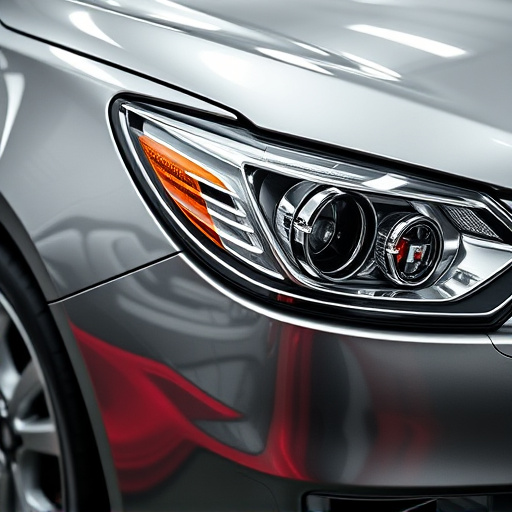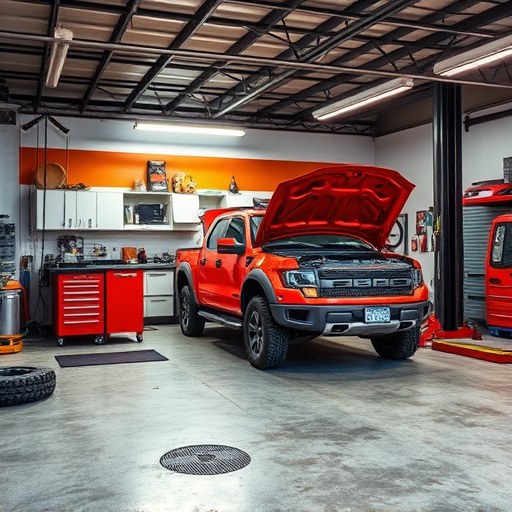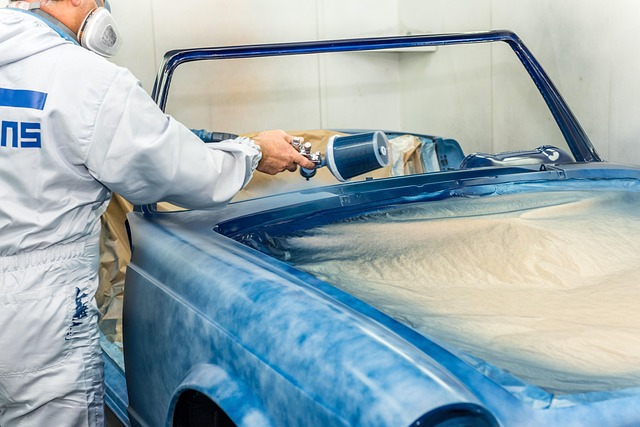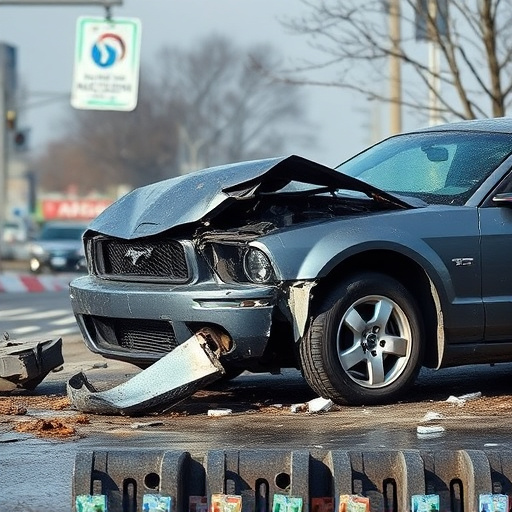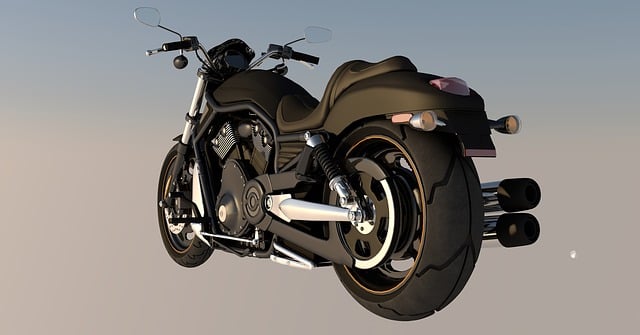Heat shield replacement is vital for vehicle safety and performance, especially in diverse weather conditions. Auto body shops assess heat shield damage based on age, driving history, and environment, offering tailored solutions. A growing trend focuses on eco-friendly materials like fiber composites and refractory ceramic mats, reducing environmental impact while enhancing sustainability. Shops adopting green practices, using recycled materials, and efficient recycling programs minimize ecological footprint, appealing to customers seeking sustainable services for high-quality repairs.
In today’s eco-conscious world, even seemingly niche industries like aerospace are embracing sustainable practices. This article delves into the growing importance of eco-friendly approaches in heat shield replacement, a critical component for space exploration. We explore the unique challenges and opportunities this presents. From understanding specific needs to discovering innovative materials and implementing sustainable installation methods, we uncover how these steps contribute to a greener future for space travel while ensuring effective heat protection.
- Understanding Heat Shield Replacement Needs
- Exploring Eco-Friendly Materials and Technologies
- Implementing Sustainable Practices in Heat Shield Installation
Understanding Heat Shield Replacement Needs
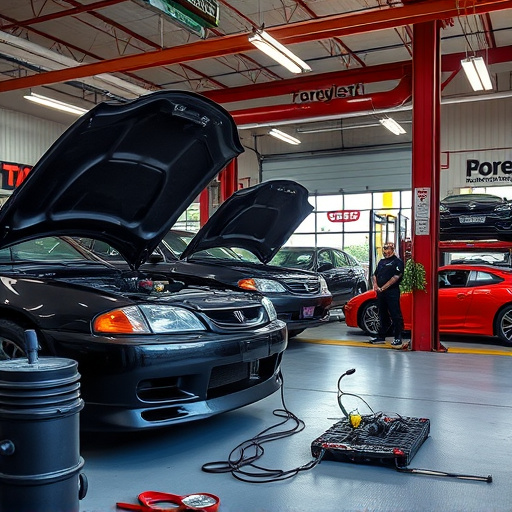
The process of heat shield replacement is a critical aspect of vehicle maintenance, particularly for those who drive in diverse weather conditions. Heat shields, designed to protect the underbody and engine components from excessive heat, are essential for maintaining optimal car performance and safety. Over time, these shields can become damaged due to road debris, extreme temperatures, or regular wear and tear, necessitating their replacement.
Understanding the specific needs of heat shield replacement involves recognizing the various factors that contribute to degradation. In auto body repairs, a qualified technician will assess the extent of damage, considering elements like the vehicle’s age, driving history, and local environmental conditions. This evaluation ensures that the car body shop provides tailored solutions, offering not just auto body services but also long-lasting replacements that enhance fuel efficiency and overall vehicle health.
Exploring Eco-Friendly Materials and Technologies
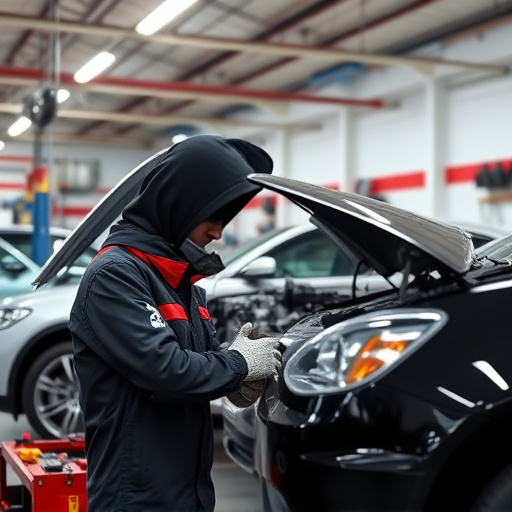
In the realm of heat shield replacement, exploring eco-friendly materials and technologies is a game-changer for both auto body repair shops and vehicle bodywork experts. Today’s forward-thinking professionals are moving away from traditional, potentially harmful materials, embracing alternatives that not only reduce environmental impact but also enhance the overall sustainability of their practices. For instance, many are now turning to recycled metal and composite materials, which offer excellent thermal protection while minimizing waste and greenhouse gas emissions associated with production.
This shift towards eco-friendly solutions is particularly notable in prestigious vehicle brands like Mercedes Benz collision repair centers, where precision and quality are paramount. By adopting innovative technologies such as advanced fiber composites or lightweight refractory ceramic mats, these facilities can achieve superior heat shield replacement outcomes while contributing to a greener future. This not only benefits the environment but also ensures that vehicle bodywork is restored to its highest standards, satisfying both aesthetic and safety requirements.
Implementing Sustainable Practices in Heat Shield Installation

In the realm of automotive collision repair and car body restoration, adopting eco-friendly practices during heat shield replacement is becoming increasingly important. Heat shields, crucial components that protect vehicles from intense heat, often contain materials that can be detrimental to the environment if not disposed of properly. By implementing sustainable practices, such as using recycled or biodegradable materials for new heat shields and establishing efficient recycling programs for old ones, auto body shops can significantly reduce their environmental impact.
Additionally, car bodywork services can embrace green technologies like advanced welding techniques that minimize material waste and energy consumption. Employing these eco-conscious methods not only contributes to a cleaner environment but also resonates with consumers who prioritize sustainability. As the demand for environmentally friendly car repairs grows, adopting these practices can set auto body shops apart in the competitive automotive industry, showcasing their commitment to both quality service and ecological preservation.
Eco-friendly practices in heat shield replacement are not just a trend but an essential step towards a more sustainable future. By understanding the needs, exploring innovative materials like recycled and bio-based options, and implementing sustainable installation methods, we can significantly reduce the environmental impact of this critical component replacement. Adopting these eco-conscious measures ensures a greener planet while maintaining efficient heat management in various industries.


